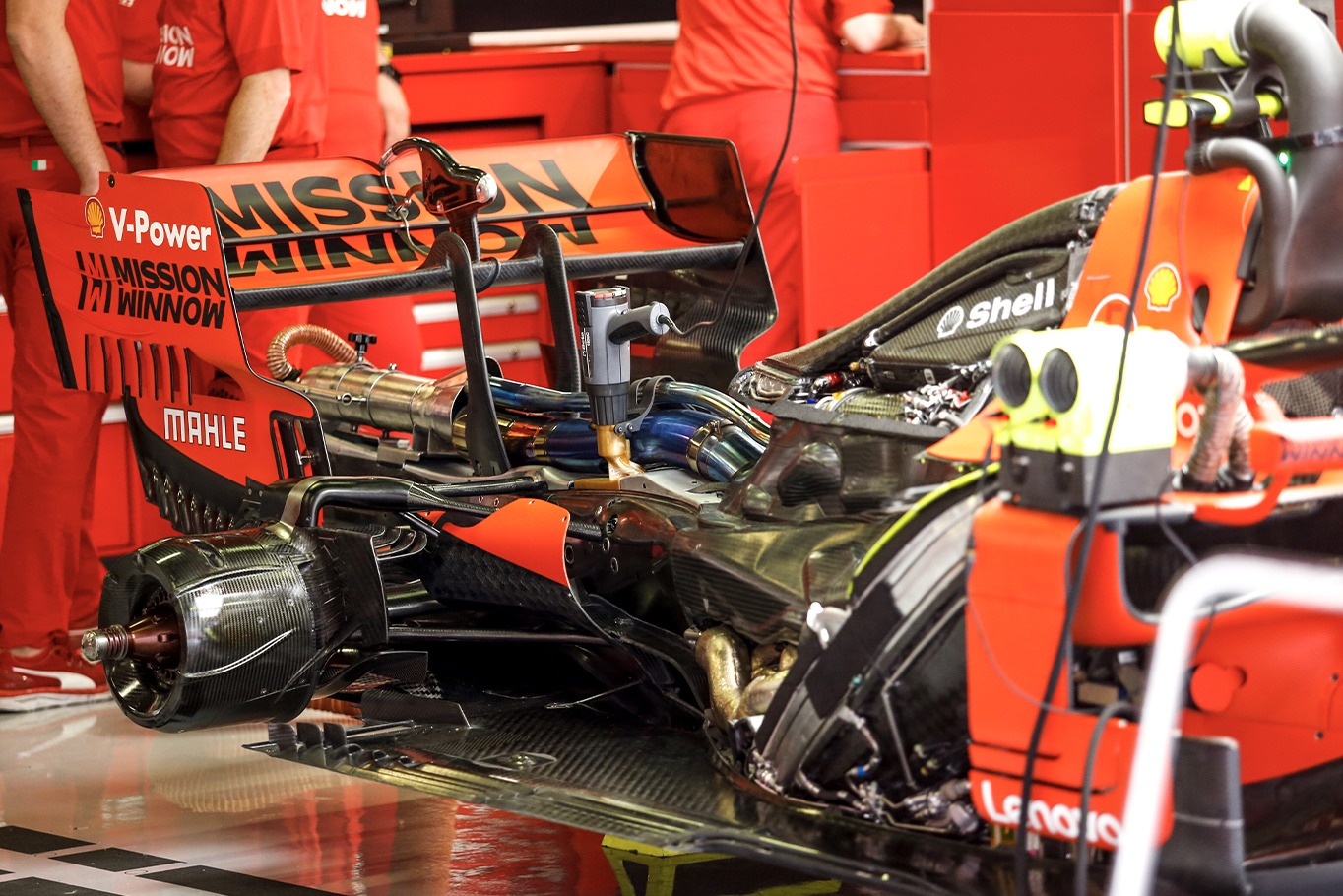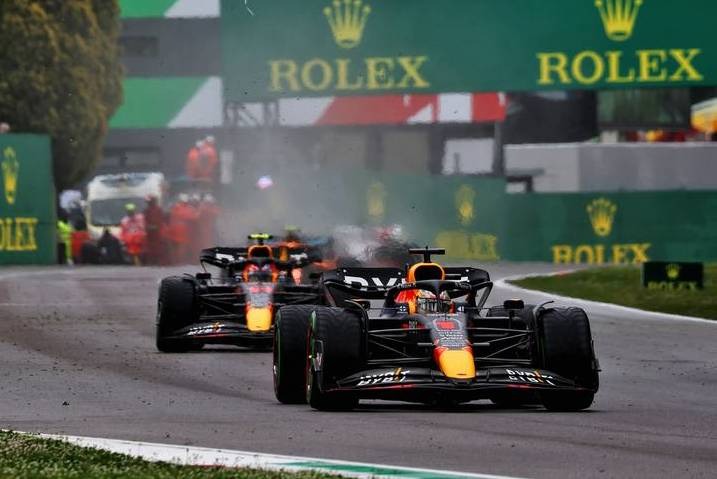The Climate Race: What now for Formula One?
Formula One is a sport which has amazed, stunned and at times horrified the world for over 70 years. It has been a sport very sure of itself – what it stands for and, most notably, what it does not.
Yet the future of Formula One is now less certain than ever before due to the rising awareness of environmental matters.
‘Environmentalism’ would have been a word never spoken of in motoring circles 70 years ago but in 2022, it’s very much at the forefront of decision making. As F1 chiefs try hard to reassure the world that this sport, at times seen as an archaic romp around the world’s racetracks, that it is indeed suitably ‘eco’ for the modern-day.
F1 along with its governing body, the FIA, announced in 2019 plans to make F1 ‘net zero carbon’ by 2030. A plan even F1 bosses conceded was an “ambitious” idea.
This plan aims to reduce carbon emissions from the internal combustion engine (ICE), make sure the turbo-hybrid powertrains are driving as green as possible and ensuring travel and events are sustainable – running on recyclable energy sources where possible.
This sort of talk is not usually the preserve of F1, and the sport’s bosses have every need to ‘look busy’ on climate matters.
For the vast majority of its lifetime, F1 has drunk up fuel by the barrel load and never at any point in the past made a truly conscious move to be seen as more ‘sustainable.’
The associations of glamour, romance and unbridled noise that F1 has traded on since 1950 is an important part of the sport’s DNA that should not be lost amidst any green revolution. And racing around the world’s racetracks every week with an army of equipment, staff and hospitality cushions to win nontangible points isn’t exactly vegan-friendly.
These associations, sacred to the sport, are at odds with climate-conscious commentators who shriek F1 is killing the planet. This divide will continue to spread with the ever-increasing need to act upon the climate emergency.

At the dawn of this new age of new tech and hyper-conscious awareness, what does its future look like?
Will F1 turn almost into a de-facto Formula E series, or will the old-school romantics of the sport bring back the fire-beathing V12’s purely in the name of thrill and noise?
“I think yes, we’re definitely going to see a much greener evolution [in motorsport] because you have to evolve”, said David Tremayne, F1 journalist and author.
“We lost tobacco advertising and there’s no drinking advertising in Formula One as such. Times change so F1 will have to evolve.
“Formula One is expanding its diversity which is very popular and is a kind of buzz word but it’s still important. So the sport is very aware of its social responsibilities these days in a way that it never was in the old days. I think it has still a huge amount to offer whilst at the same time being a form of entertainment as well.
Tremayne added: “Formula One is developing synthetic fuels which I think is incredibly exciting and incredibly important because once you can get away from fossil fuels, it opens up the world much more.”
“You’ll have hyper-efficient engines and we’ve already got thermal efficiency well above 50% which is something that Mercedes has pioneered which means you get more than 50% extraction of the energy that you put in.
“This is something that normally industrial turbines might achieve but not the much-derided internal combustion engine.
“I don’t believe the internal combustion engine is over and done, that would be nonsensical given how efficient they can be. But you need to have different kind of fuels. If you can have synthetic fuels, you could have some extremely effective engineering projects and I think that could be very important.”
Times change, so F1 will have to evolve
This is an area F1 has seen large changes in over recent years. Since 2014, the F1 grid has been run by turbo-hybrid engines. The cars driven by a mixture of old-fashioned ICE thrust and electric power – like a 220mph Prius. The turbo-hybrid engines are the most fuel-efficient engines ever seen in the sport and they crucially allow F1 to stay relevant in the ongoing climate debate.
Yet these ‘quiet beasts’ have been attacked ever since they’re addition to the sport, mainly for just this reason – they’re too quiet. The V12 and V10 engines run in the 90s and early 2000s would bark and wail down the pit straights. And due to the ‘quiet revolution’ that’s succeeded them, have become the frequently-caressed picture upon the shrine to what many see as F1’s golden age of loud engines, tobacco sponsorship, grid girls, big mouths, wide pockets and fast racing.
F1’s attempts to ‘Go Green’, follows a worldwide pattern from national governments to enact legislation to turn the tide in the climate war.
The UK government announced in November that petrol and diesel cars will no longer be sold past 2030, in their attempt to achieve net-zero.
The measure has attracted criticism given that electric cars remain economically unviable for the majority of customers given how expensive they remain to be. Many also see them as impractical when the infrastructure, such as frequent charging points coupled with lengthy charging times, simply doesn’t exist right now.
He said: “We’ve also got the promise from the Prime Minister that by 2030 of only electric cars being on sale as new vehicles in the UK. That is a stupid comment, it was designed purely as a political comment to suit the times.
“This is where I think a liaison between Formula One and government would be beneficial for both parties.
“Because then politicians don’t have to come out with these silly statements and so they can actually have a proper process by which they achieve these rather lofty aims that sound good but don’t really have any basis for how they’re actually going to achieve them.
“The difference between governments and politicians”, he added, “is that in Formula One there are a huge number of incredibly clever people who don’t just talk, they do. They’re working on things even now and If I was a Prime Minster, I would be having some sort of thinktank comprising some of these clever people in Formula One and asking them ‘what do you see is the future?’”

Adding: “It’s fashionable to deride any government, but there are smart people in Government just as there are in Formula One. I don’t see why, if they’re tasked in the correct way, that they can all come out of this extremely well.
“And it’s the obvious thing to do because the science within Formula One is so clever and at the same time, if people from Formula One are seen to be assisting with a ‘green movement’ which pioneers engineering, that would be a huge inspiration to kids to take up STEM subjects.
“I know there’s a lot of movement on that anyway, but this would put particular relevance on that if Formula One was seen to be ‘looking to the future’ on the general technologies that the man in the street uses.”
Motorsport has long-been the studio for trailblazing engineering projects. The workshop for weird and wonderful ideas that are tested on the track and translated into the road cars of the F1 manufacturers.
A liason between Formula One and government would be beneficial for both parties
Cars were fitted with LED headlights as the norm after endurance cars racing at Le Mans in the 1990s tested them out first.
Disc brakes started to appear on race cars for their superior stopping power in the 1950s and soon were fitted to production cars on the factory floor.
Rear-view mirrors another – born from the need of racing drivers to see their fellow opposition behind them.
Manufacturers soon learnt it was not just a handy race tool but also a safety measure which could be sold on their road cars back home.
This motoring ingenuity is something Tremayne feels could soften attitudes to the oncoming electrical motoring world.
And if its anyone who could educate the way we approach the mass-production of these vehicles in the future, it’s the minds of motorsport.

Commenting: “When Formula One people think about things, not only are they very clever but they think laterally. It’s not just about lap time on a racetrack which, at its base, is a fairly unimportant activity.
"It might be something we enjoy but it’s not world saving. But the spin off from that, most definitely can be.
“And if anyone can come up with clever ways on engineering and innovate ways of being carbon neutral, its these kinds of people. Because Formula One, specifically endurance racing, has always been a crucible for development.
“I will be fascinated to see what new technology the 2025 engines embrace, but you can bet your life that Formula One will be at the cutting edge.
“But the trouble is”, he finished, “Formula One does not blow its own trumpet and it needs to start doing that.”
Post a comment